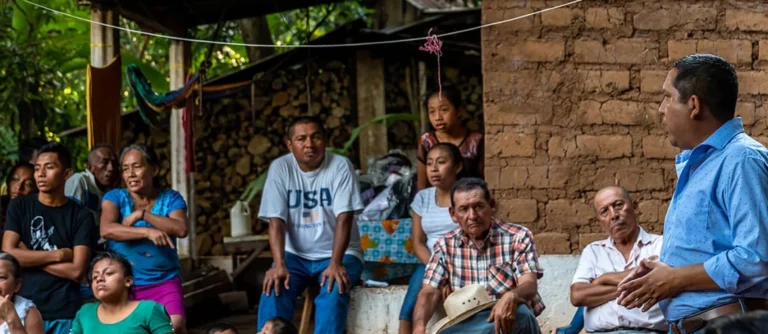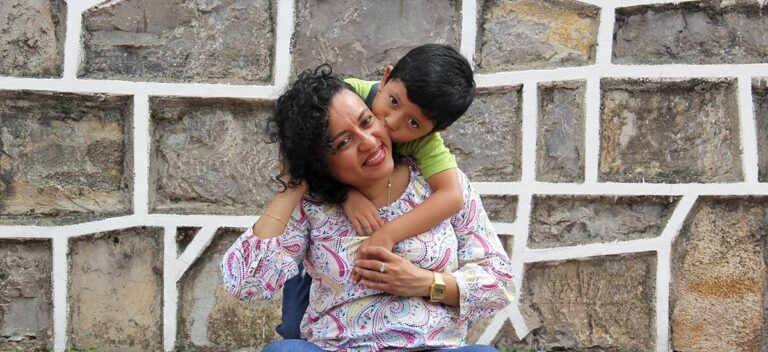August 5, 2024
Leveraging Emotional Intelligence: A New Frontier in the Fight Against School Violence
By: Lelys Dinarte-Diaz, Pablo Gana-del Sol, Claudia Martinez A., Cindy Rojas Alvarado
Tags:
This article was initially published on the Inter-American Development Bank’s blog – Ideas that Count, on July 24, 2024.
In the Northern Triangle of Central America –Guatemala, Honduras, and El Salvador– educational institutions face a crisis of school and out-of-school violence, as well as school dropout rates 22% above the average for the rest of Latin America and the Caribbean. This crisis –often linked to gangs– endangers not only the safety of students but also their mental health and long-term economic prospects.
The challenge for educators and public policymakers lies not only in protecting children by keeping them off the streets, where they can be unsupervised and become victims of or be influenced by criminals. It also lies in exposing them to social-emotional learning that can help them control impulsive responses, regulate their emotions, and channel their energy towards more productive ends.
“In the Northern Triangle of Central America –Guatemala, Honduras, and El Salvador– educational institutions face a crisis of school and out-of-school violence, as well as school dropout rates 22% above the average for the rest of Latin America and the Caribbean. This crisis –often linked to gangs– endangers not only the safety of students but also their mental health and long-term economic prospects.
The challenge for educators and public policymakers lies not only in protecting children by keeping them off the streets, where they can be unsupervised and become victims of or be influenced by criminals. It also lies in exposing them to social-emotional learning that can help them control impulsive responses, regulate their emotions, and channel their energy towards more productive ends.
In a recent study, we explored a promising intervention based on social-emotional learning administered in after-school programs. We analyzed whether these programs focused on social-emotional learning can improve the behaviors and academic outcomes of adolescents and, in particular, what type of curriculum yields the greatest benefits.
Beyond Academics: The Intervention
Instead of providing conventional academic and recreational support, with extracurricular sports and arts activities, after-school programs, as we have reimagined them, could be environments for cultivating resilience and emotional regulation, fundamental pillars of student development. We conducted a randomized trial in 21 schools located in violent neighborhoods in El Salvador, Guatemala, and Honduras, assigning them to three types of after-school programs:
- Clubs: Interventions based solely on recreational activities such as sports, art, and dance.
- Mindfulness-focused programs: Psychological interventions based on a mindfulness and relaxation program, including breathing, stretching, relaxation, and concentration.
- Virtue-focused programs: Psychological interventions aimed at strengthening character and virtues, including training in concepts such as perseverance and self-reflection activities where students reflect on how to achieve their goals.
As part of our intervention, each virtue-focused and mindfulness-focused session was immediately followed by activities from the club group. Participants from all branches of the experiment attended two weekly sessions (1.5 hours each) after school hours for seven months (from April to October 2019). All sessions were conducted by volunteers without formal training in psychology or social work. The net effect of social-emotional learning was measured by comparing the average outcomes of students enrolled in schools assigned to either of the two psychology-based curricula with those of students enrolled in schools assigned only to clubs.
The results were compelling: we found that, compared to clubs, the social-emotional learning curricula (focused on virtue and mindfulness) improved student behavior by a surprising 23 percentage points, while also significantly improving emotional regulation. Beyond simply providing a protective environment, social-emotional learning was clearly effective.
Exploring the Power of Mindfulness
The impact of mindfulness activities was particularly notable. Although both social-emotional learning approaches –virtue and mindfulness– produced significant behavioral benefits, the mindfulness curriculum, characterized by breathing exercises and concentration techniques such as guided meditation, significantly reduced dropout rates and strengthened young people’s resilience and concentration. This positions the mindfulness approach as a critical component in educational tools against violence and school dropout.
Adapting Social-Emotional Learning Interventions to Better Combat School Violence
The behavioral benefits of social-emotional learning were also greater among those who needed it most. They were stronger among higher-risk students, who tended to be male, older, with lower levels of skills and supervision, from violent areas, and with negative behaviors prior to the intervention.
In Central America’s violence crisis, students potentially face a range of negative consequences, such as dropping out of school and gang recruitment. Our study demonstrates that social-emotional learning offers another way out and can become a catalyst for change in schools. As a cost-effective and evidence-based intervention, it can strengthen schools not only as safe spaces but also as places for holistic development.



